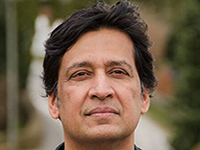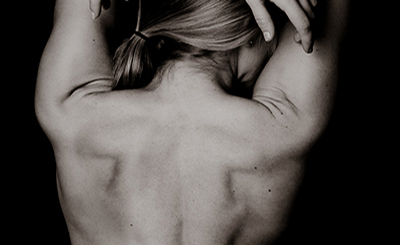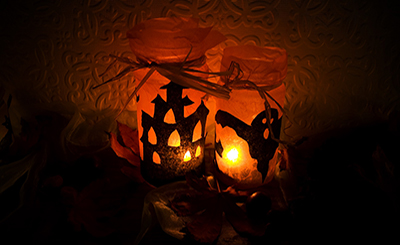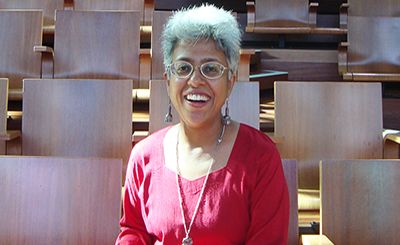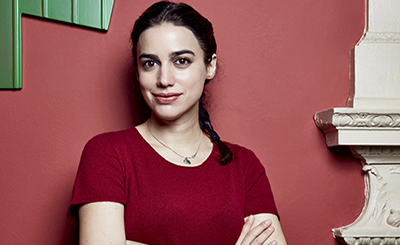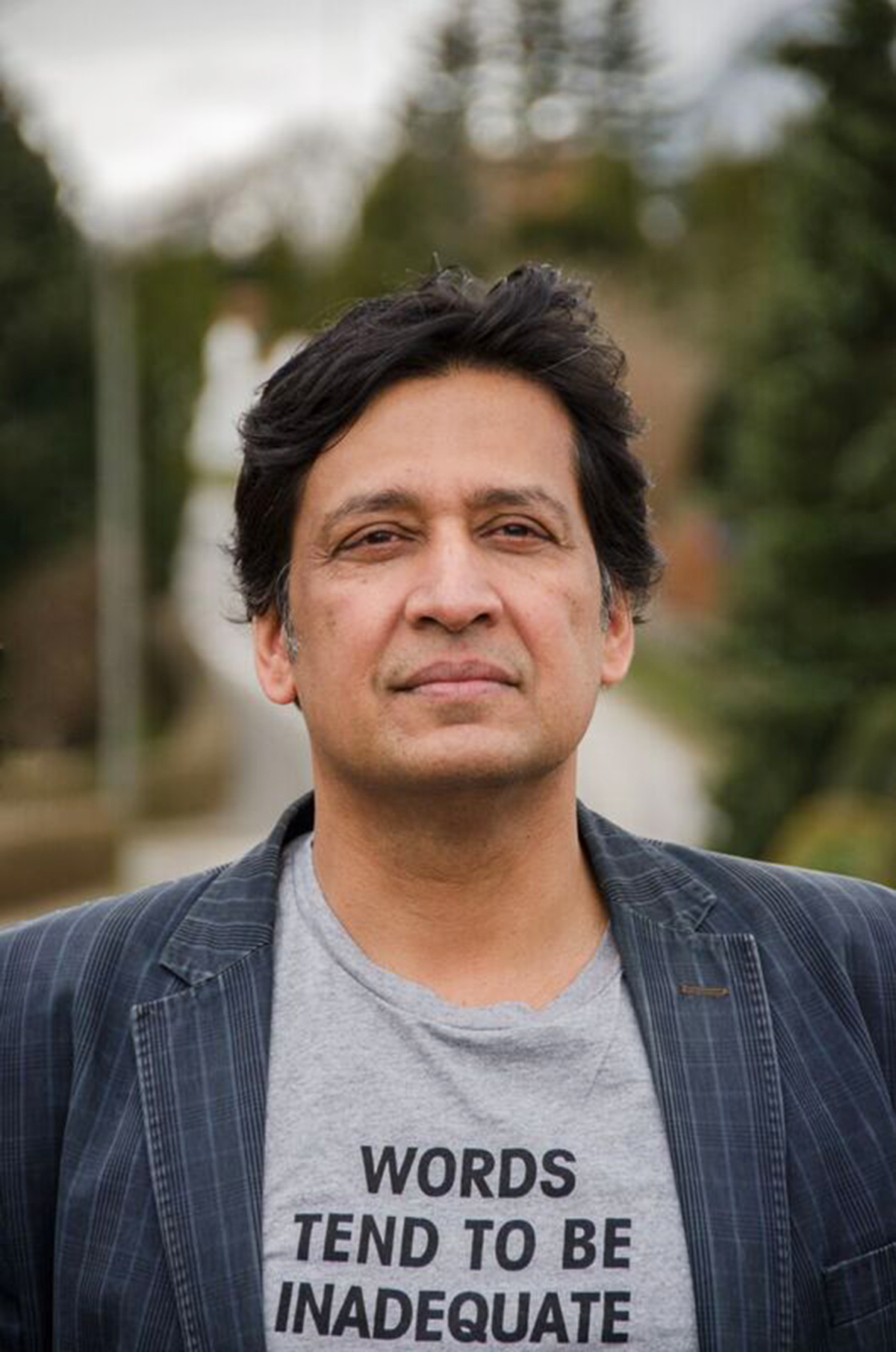
Tabish Khair. Photo: Christopher Thomsen
Poet’s Note: What Poetry Demands
Poetry needs a muse. Academia requires, at best, a research assistant. No wonder the deeper I sink in academia, the less poetry I write.
I can imagine myself when I was in my teens or twenties reading these three sentences that I have written above, written now, in my fifties, and I can see myself wince. Ouch! What romantic rubbish, my 19-year-old self, reading and writing poetry with a vengeance in a taluk town, exclaims. Muses, ha, I scoff at the age of, say, 23, and immediately accuse my 55-year-old self of clichés and sexism.
But my 55-year-old self persists. Muse, he mutters. It can be anything. It can be some god, like inspiration, that you believe in. It can be a woman, or, if you are a heterosexual woman or a homosexual man, it can be a man. It can be an idea or a cause. It can be the ghost of a person or a place. No one can define your muse for you. You have to find it, her, him yourself. No, you have to allow yourself to be found. Vulnerability is the only thing your muse demands of you.
I suspect the muse is necessary for all creative work.
Who was it who said: the only good reason to write is money? I think it was Ben Jonson. Or was it Alexander Pope? I have forgotten, though there was a time when I loved to quote that line. It was part of everything that I wished to push away, even though all that I pushed away was still shaping my poetry. I had my muses even then: person, idea, ghost. More than now, when I am aware of the need. That youthful denial of the reality of the muse was just a gesture, perhaps necessary, because one cannot allow oneself to become too vulnerable at the age of 19.
But, at the age of 55, you can. You can allow yourself to say silly things. If you cross that bridge. Many do not. They get more and more respectable. They seal themselves up. The closer they approach their ultimate vulnerability, death, the more they try to limit the world and words.
Life commands you to open yourself up to at least one other reality. It is this other reality that is your muse. At 19 or 23, you do not want to accept that an/other is central to your existence. But by 55, if you remain a poet in your cell of academia or banking or whatever, you realize that it is your vulnerability that makes a poem. This is the nature of the muse. It is your muse that concentrates your mind on your vulnerability to the world and to words. The darker the times, the greater the need for this muse.
So, when you turn 55, you allow yourself to say something silly like this: Poetry demands a muse.
The Other Half of Kabir’s Doha
Now that the world has proved porous
How will we ever separate
The dagger from the skull?
Who having gathered up the broken
Pieces of a voice will speak
In his own voice or her own voice
Or the voice of his mother?
Who will follow you now, Kabir,
From the marketplace of deceits
Through the song of protest
To that hut where a king of kings
Came without his crown?
Who will turn the oceans to ink,
All the forest trees to quill,
And still fail to inscribe earth?
Who will whittle the world to songs
And keep wisdom from words?
Who will be willing to be torn
Between two final truths
And turn flower?
And yet, when I think of this world
Which has turned porous, I recall
The time I voiced a line from your dohas, Kabir,
Struggling to set it free from the prison of a book,
And heard my grandfather’s wordless cook
Casually complete your couplet.
By My Father’s Deathbed
Will you go out like a light
Or linger like a flower,
Waning with touch and sight,
A petal by the hour?
Will you depart in silence
Or say a word or two
To put your life in sequence,
To help us bury you?
And will your eyes be open,
Or will your eyes be closed —
An answer simply given?
A question hardly posed?
And will you leave us lonely,
Or will we leave you alone:
A heaven none can see,
Or just this truth of bone?
I hold your hand in mine, and think
How much it has aged;
I see your chest rise and sink;
Your breath is barely caged;
Your hair is thin (but still in place);
Your gaze is firm and bold;
You have not sought solace
In babble of god or gold.
Your steady faith in the One,
Whom I so often disown,
Since your illness had begun,
Hasn’t diminished or grown…
And so, I guess it will be
When finally the hour descends:
You will be you, I will be me,
No beginnings, no ends.
Will you be blind, or will I see?
Will you be right and I wrong?
Or will somehow our two worlds be
Like melody and song?
Will my future and all your past
Reveal what the moments meant?
Will it make sense at last, at last,
This gift of the present?
(previously unpublished)
Shop
Federico García Lorca lonely in New York
With his list of English words to get by barely
(Shishpil: sex appeal), on the edge of hechopoético
Where an image falls together not like clouds in the sky
But a hurt’s shadow on the great cold wall of show,
Writes about a hurricane of black pigeons splashing,
Writes about furious swarming coins that devour children,
Writes about the poisonous mushroom,
Writes about wiping moonlight from the temples of the dead,
Writes about the fire that sleeps in dark flints, sleeps,
Awakes to his own private memories of sorrow and loss,
That blue horse of his insanity that makes him see
The three who were frozen, the three burned, the buried three.
Spanish Siddhartha, Buddha of the beautiful body, poet
Of crystallized fish dying inside tinfoil tree trunks,
Hear the pain in her smile here where only teeth exist
And flints have long been caped in satin, dogs stay dogs,
Watch the voice outside that ethnic shop — Fucking Paki
Place is like always open — put a stainless steel lock
On Earth and its timeless doors that lead to the blush of fruits.
(previously unpublished)
To H. C. Andersen
Outside the walls you crashed with Danish words,
I hold a match between finger and thumb;
Its burning opens no door, no passage.
I can almost make sense in your language:
I’m no bewitched mermaid; I have my tongue,
And poems flutter in its cage like birds.
(previously unpublished)
The essay and the poems are part of our Poetry Special Issue (January 2021), curated by Shireen Quadri and Nawaid Anjum. © The Punch Magazine. No part of this essay or the new poems exclusively featured here should be reproduced anywhere without the prior permission of The Punch Magazine.
More from The Byword
Comments
*Comments will be moderated



